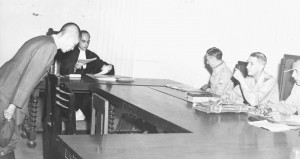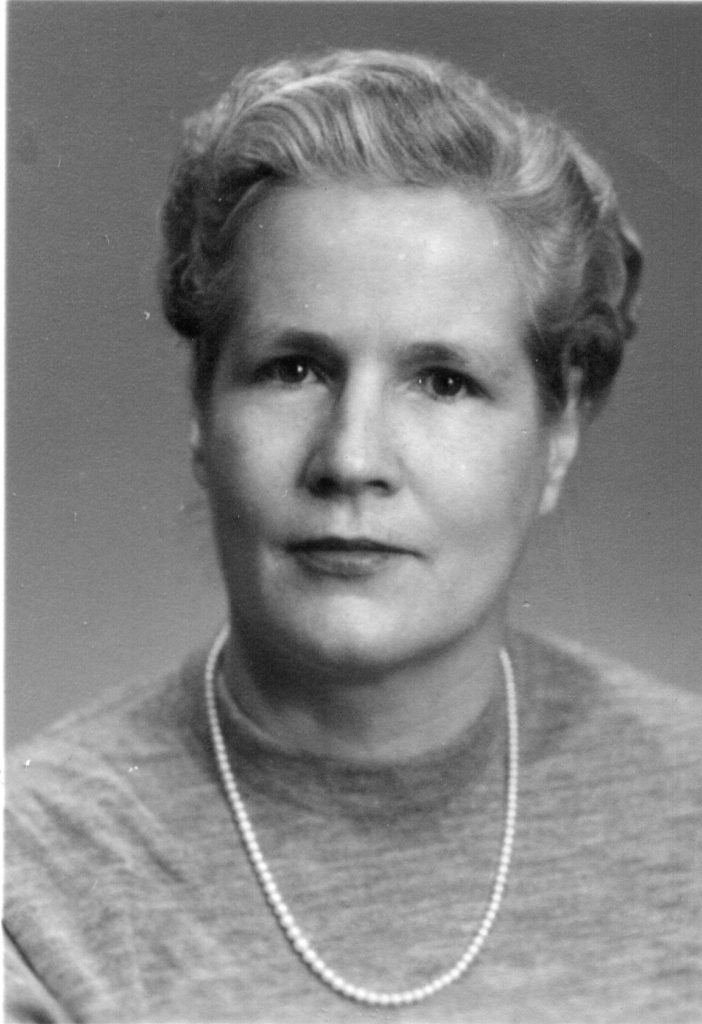Sonei Kenichi
Sonei Kenichi, Captain

Sonei Kenichi was a Captain in the Imperial Japanese army, and as of September 1942 was placed in charge of a number of prison camps in and around Batavia ( Jakarta). His first assignment was the Petakoan “Cycle Camp” (or Xth Battallion camp) where Allied Prisoners of War were interned upon capitulation. This camp was used as a transit facility to flow POWs from elsewhere on Java to the various slave labour operations in South East Asia and Japan. Sonei’s notoriety as a brutal camp commandant was first established here.
In early 1944 Sonei Kenichi was re-assigned to take over the supervision of the ten or so women’s and children’s prison camps in Batavia and surroundings. This was part of the policy of placing all civilian prison camps under military supervision. Prior to that, Japanese civilians conscripted by the army (“economists”) had performed this function. A summary of his reign of terror is provided in chapter 9 of Tjideng Reunion.
Sonei as War Criminal
At his trial held in Batavia (today’s Jakarta) was tried On july 5th 1946 and convicted to death. The Sonei Trial has been translated from the Dutch by Boudewyn van Oort. At his trial a number of former Tjideng internees testified about his brutal and vindictive behaviour. Mrs Elizabeth, Anna Catherina Muthert gave a particularly chilling and detailed account on 27 June 1946. here she describes numerous occasions of barbaric behaviour, a number of which I witnessed as a child. Mrs Muthert had served in Tjideng as a hancho (a person in charge of about 2500 internees living in one of four sectors of Tjideng). She dealt with him in this capacity on a daily basis.

Elly Campioni also devotes much attention to Sonei Kenichi in her unpublished memoir. She had served as kaicho , or camp head, in Grogol, a former lunatic asylum located outside of Batavia. Grogol had been converted into a women’s and children’s internment camp for destitute women completely dependent on charity. Elly Campioni had to deal with Sonei in her capacity as kaicho between April 1944 and end August 1944. With Grogol located some distance outside of town she had less to do with him than Mrs Muthert. . Elly refused to testify against him at his trial, but she also refused to continue serving him in an administrative function upon her return to Tjideng. She earned Sonei’s respect, because of her tough attitude , but possible also because he knew that she had in her possession a photograph of her as a teenage girl in the presence of the Crown Prince Hirohito. She had some power over Sonei
Other Opinions
Many observers, including his Korean colleagues, saw the man as being an unstable individual, and literally attributed lunacy to his behavioural pattern, noting a correlation between his brutal and irrational excesses and the phases of the moon. His supposed persona appears as a prominent figure in the novel Sunken Red (Jeroen Brouwer), in my opinion, unfairly. There is no evidence that he raped .
Sonei Background

Dr. van Velde devotes a lot of attention to this man in her book. Sonei Kenichi was born in Japan, served in China before coming to Java as a member of the 16th Army. He was convicted in Batavia on 2 September 1946 as a class B war criminal and executed on 7 December 1946. Shortly before his execution he wrote a letter to his parents, stating “when one takes part in the struggle, he offers his life for his country, but this time retribution has been exceptionally hard, and based on a one-sided judgement…. I do not feel that the death penalty is a source of shame. I feel instead that it is a punishment inflicted on me by the Gods and Buddha, because of the wrongs I have done during my existence. I will use the time remaining to confess my sins to the higher powers. The path to spiritual insight is difficult to detect for those who are not holy, but I have always sought this. Some will pity me for my fate as wartime victim but no one will despise me. I feel no shame.” (1)
Hubertus van Mook, the Governor General of Netherlands Indies sought in vain to overturn the death penalty. His wife had been interned under Sonei and was fully aware of his brutal behaviour. The post war hatred of his former prisoners, replacing war time fear, however knew no bounds. He remains a highly controversial figure in a dramatic confrontation between East and West.
(1) Dr D. van Velde: de Japansche Burgerkampen, pp 497, T. Wever, Franeker, 1963 ISBN 90 6135 241
/
Leave a Reply